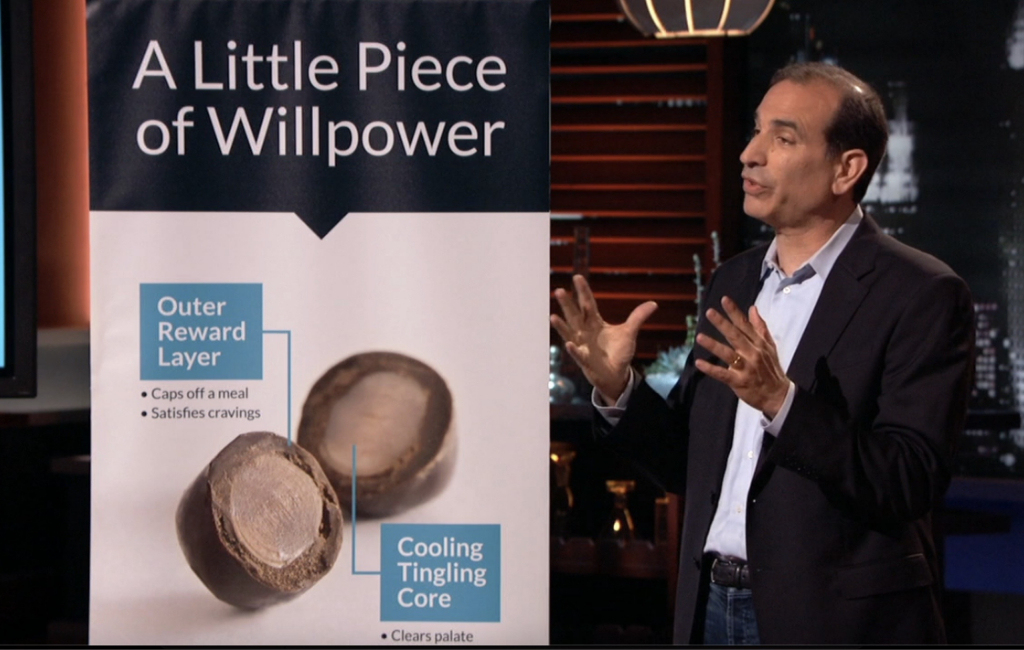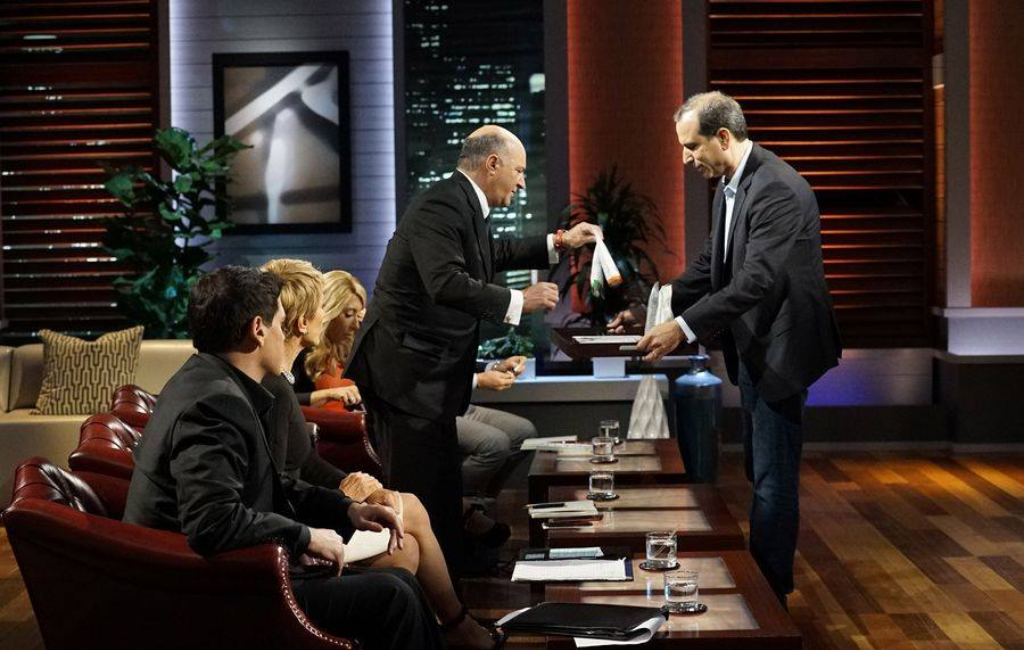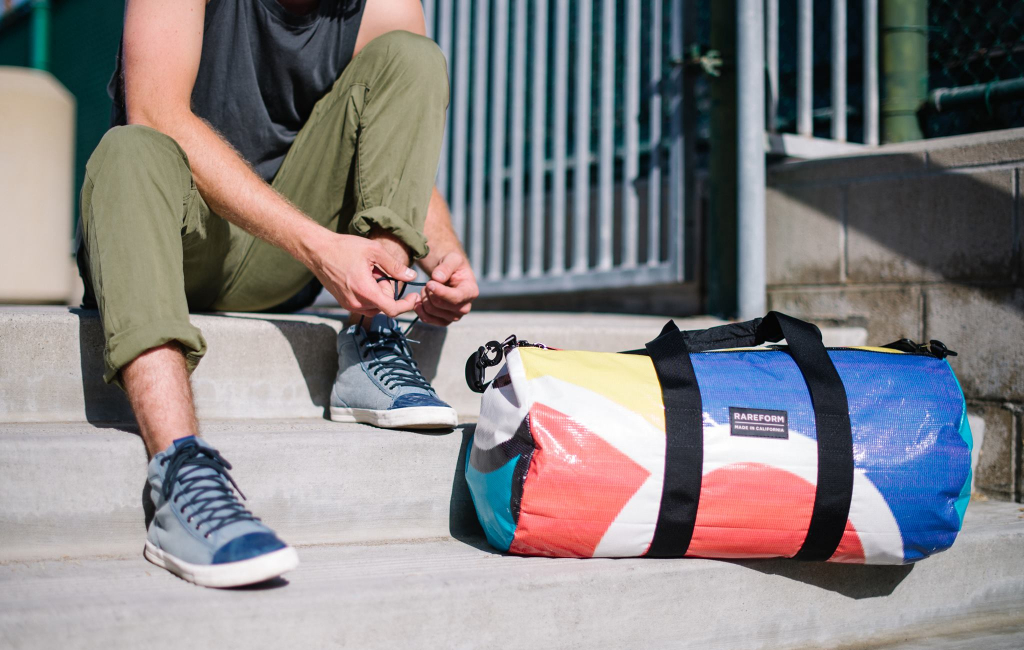MealEnders Curb Food Cravings

NO DEAL
EPISODE SUMMARY

Asking For:
$350,000 for 8%
Investor:
No Deal
Deal:
No Deal
PRODUCT SUMMARY
MealEnders are signaling lozenges that use behavioral psychology and sensory science to help control appetite, master portion control, and curb snacking, with a unique two-layer formula.
WATCH HERE
IN A RUSH?
Click these to jump to the section you want to read.
Background Story
Mark Bernstein, founder and CEO of MealEnders, embarked on the journey to create a unique solution for weight management based on his personal struggles and a genuine desire to help others. Hailing from San Francisco, Mark was not a scientist by profession but rather someone who experienced the common challenge of controlling weight as he aged. Motivated by annual visits to the doctor, where weight loss was consistently advised, Mark decided to address his own eating habits. He recognized that his primary issue was stopping himself from overindulging, leading him to search for a product that could provide an effective solution.

This personal need became the catalyst for the creation of MealEnders. Understanding his limitations in scientific expertise, Mark collaborated with the leading food development company in the country to bring his vision to life. The result was MealEnders, signaling lozenges designed to combine behavioral psychology and sensory science. The product aimed to assist individuals in beating overeating, mastering portion control, and curbing snacking. Mark’s weight loss journey, shedding 15 pounds through the use of MealEnders, served as a testament to the product’s effectiveness.

Emphasizing mindfulness as a key component of his success, Mark’s personal transformation fueled his passion to share this innovative solution with others facing similar challenges. The decision to create MealEnders was not just a business endeavor for Mark; it was a mission to offer a practical and accessible tool for individuals seeking a healthier relationship with food.

The Product
MealEnders presents a distinctive approach to weight management through its signaling lozenges, blending behavioral psychology and sensory science. The product addresses the common struggle of overeating and supports individuals in mastering portion control and curbing snacking.
The lozenges feature a dual-layer formula. The outer layer serves as a reward, delivering a measured dose of dessert flavor to signal the end of a meal and satisfy snack cravings. Meanwhile, the inner core provides a unique cooling and tingling sensation. This core clears the palate and redirects focus away from eating until the natural fullness signals kick in. The combined effect aims to reward and reset taste buds, freeing users from the desire to overindulge.
MealEnders come in various flavors, including chocolate mint, mocha, citrus, and cinnamon, offering a diverse range of options to cater to different preferences. The product is designed to dissolve in the mouth without the need for chewing.
Customers can purchase MealEnders online through the company’s website or on Amazon. The pricing structure is flexible, with individual bags available for $16.95 and quantity purchases on a continuity plan offering reduced rates, going down to $8.99 per unit. This pricing strategy allows customers to choose based on their preferences and usage patterns, making MealEnders accessible to a wide range of individuals seeking a practical and enjoyable solution to address their weight management goals.

How It Went
The company’s position before Shark Tank
MealEnders has demonstrated a solid performance since entering the market, with a focus on addressing the widespread issue of overeating and providing an innovative solution for weight management. Over the course of a year and a half, the company has achieved $1.4 million in sales, showcasing a promising market presence. The company operates primarily through its website and Amazon, with a direct-to-consumer model that allows for a more personalized customer experience.

As for funding, MealEnders has attracted significant investment, totaling $1.1 million, including a convertible note round. The founder, Mark Bernstein, has contributed $200,000 from his family towards the venture. This infusion of capital has played a crucial role in supporting the company’s growth initiatives, including product development, marketing efforts, and overall business expansion. In terms of profitability, MealEnders has experienced some profitable months over the last few months. However, the company has been strategically reinvesting its earnings back into the business, focusing on top-line growth.

This approach aligns with their goal of expanding market reach and awareness, evident in their substantial advertising efforts. Monthly revenues have reached an impressive $170,000 to $175,000, indicating a healthy sales trajectory. MealEnders has positioned itself as an online-focused brand, with sales occurring primarily through their website and the popular e-commerce platform, Amazon. Their direct-to-consumer strategy allows for a more streamlined customer experience and provides valuable data insights for further market optimization.
The Negotiations:
In the “Shark Tank” negotiation for MealEnders, founder Mark Bernstein entered seeking a $350,000 investment in exchange for an 8% equity stake in the company. The Sharks, however, had varying concerns and perspectives, leading to a detailed and dynamic negotiation process. Mark Cuban and Lori Greiner expressed reservations about the taste and potential virality of the product, while Kevin O’Leary and Robert Herjavec highlighted challenges associated with the supplement and diet industry. Despite the impressive sales figures and positive third-party testing results, the Sharks ultimately decided not to invest, citing reasons ranging from personal preferences to concerns about scalability and the significant advertising expenditure required.

The negotiation highlighted the challenges of entering the competitive market of weight management products and the potential hurdles in creating widespread awareness. Kevin O’Leary pointed out that the product might face difficulties in gaining recognition amidst the constant influx of new products in the market. Additionally, the Sharks were critical of the substantial advertising expenses, with concerns that the business model might burn through significant funds before achieving scalability.

Mark Bernstein remained optimistic, emphasizing the enormous scale of the problem that MealEnders aimed to address. He highlighted the potential of the product to help those who don’t have access to celebrity endorsements or personal trainers, positioning it as a practical solution for a broader audience. Despite the rejection from the Sharks, Mark’s unwavering belief in the product’s impact showcased his dedication to the mission of providing an accessible tool for individuals striving for a healthier relationship with food.







